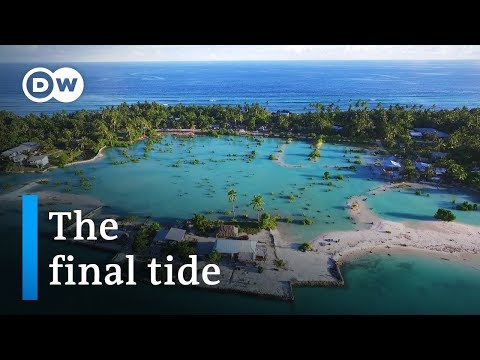
Nestled in the vast expanse of the Pacific Ocean lies Kiribati, an island nation that epitomizes the raw beauty and poignant plight of small island countries facing the existential threat of climate change. The Republic of Kiribati, with its pristine beaches, crystal-clear waters, and vibrant coral reefs, serves as a stark reminder of paradise under siege.
### Geography and Demographics
Kiribati comprises 33 atolls and reef islands spread over a vast area in the central Pacific Ocean. These islands are dispersed along the equator, straddling all four hemispheres and presenting a unique geographical challenge for governance and communication. The capital, South Tarawa, is home to approximately half of the country’s 110,000 inhabitants. Life in Kiribati is intricately tied to the ocean and its bounty; however, this dependency has rendered it exceedingly vulnerable to environmental changes.
### Climate Challenges Facing Kiribati
The primary challenge for Kiribati is its topography; being only a few meters above sea level makes it one of the world’s most vulnerable countries to rising sea levels due to global warming. Scientists predict that if current trends continue without significant global intervention in carbon emissions reduction, much of Kiribati could be submerged by the end of this century.
The visible effects are alarming – coastal erosion washes away vital land each year while saltwater intrusion renders freshwater lenses non-potable and agricultural soil saline. High tides increasingly result in flooding that devastates local communities and critical infrastructure. This not only impacts livelihoods but also exacerbates existing social and health problems.
### Socio-economic Impacts
The economy of Kiribati is primarily dependent on fisheries, copra (dried coconut kernels), and external aids. However, climate impacts threaten these key sectors dramatically. Fish populations are at risk due to coral bleaching caused by rising ocean temperatures affecting both food security and economic stability derived from commercial fishing agreements.
Moreover, with limited arable land available that’s rapidly becoming even scarcer due to salinization, food security remains a pressing concern. As resources dwindle and habitable land retracts, social tensions are likely to increase amongst communities forced to relocate or compete for diminishing supplies.
### Adaptation & Mitigation Efforts
In response to these challenges, I-Kiribati (as the people are known) have taken some steps towards adaptation. The government has instituted policies aimed at sustainable development including investments in renewable energy sources such as solar power which align with their National Adaptation Plan of Action (NAPA). Moreover, programs like “Migration with Dignity” aim to skill individuals so they can emigrate voluntarily as skilled workers rather than climate refugees.
International aid also plays a crucial role in providing support for infrastructure development designed to withstand harsher conditions like elevated roads and strengthened sea walls. Such initiatives offer hope but require ongoing commitment from global partners.
### The Role of Global Cooperation
Kiribati’s plight emphasizes a broader imperative – that climate change is not merely an environmental issue but one intrinsically linked to human rights. The fate of I-Kiribatians reflects larger issues about climate justice requiring substantial international collaboration for mitigation policies. It calls for concerted efforts under agreements like Paris Accord commitments where affluent nations pledge significant emissions reductions alongside supporting those who bear minimal responsibility for yet face early repercussions from climate change.
### Conclusion
Kiribati remains emblematic as both paradise lost and ground zero for global warming’s frontline impact on humanity’s relationship with our environment. In highlighting this crisis through narratives like DW Documentary’s coverage on “Kiribati: A Drowning Paradise,” awareness grows influencing necessary policy shifts aiming at protecting places such as Kiribati – where not just livelihoods but cultures teeter on displacement’s edge against rising tides.
